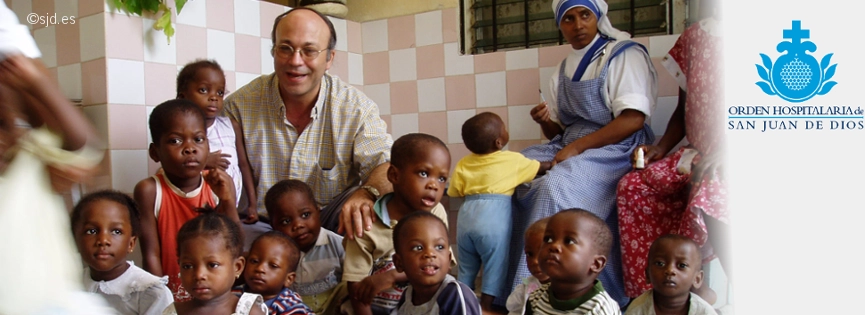Main content
John of God 2015 Princess of Asturias Award for Concord

It is a non-profit Catholic organization within the Catholic Church whose mission is expressed through hospitality and the humanizing of care services. It was founded in Granada in 1593 by Juan Ciudad, who established the first hospital for the care of poor patients, financed via donations. By the end of the 16th century, more than 50 hospitals had been established, mainly in Spain and Italy. The Order continued to expand through the Spanish colonies in America and through Europe (by the late 18th century, there were 256 centres). Its expansion in Latin America reached a peak in the 19th century, with the organization spreading through Africa, Asia and Oceania in the 20th century. In 2004, they were the first Hospitaller Order to open a centre for palliative care in China, in Yan-Ji. The Order currently provides care to 27 million people each year.
By adapting its work to the requirements of the times, the Hospitaller Order of St John of God has maintained the solidity of its services, in particular in palliative care, making a special effort during the Ebola epidemic declared in several African countries in 2014. At the time, the Hospitaller Order and the Juan Ciudad NGDO launched the Stop Ebola in West Africa campaign –the virus had already caused 518 deaths–, asking for donations for their hospitals in Lunsar (Sierra Leone) and Monrovia (Liberia) to provision isolation areas and acquire materials. Both hospitals were closed for disinfection and quarantine purposes. Part of their staff was infected, with 18 brothers and co-workers dying there. The Order continued to work for the prompt reopening of the two centres, training staff in safety protocols to fight the virus in coordination with the health authorities and other international institutions and continued to provide information and care to quarantined families (food, medicines and psychological support). The HOSJG currently has 350 centres, more than 70 in 27 impoverished countries out of the 55 in which it is present. It is also equipped to provide social and healthcare services within the spheres of hospitals, health centres, mental health, disabilities, geriatric health and social services. In this last area, it provides care to migrants, the homeless, those at risk of social exclusion, AIDS sufferers and drug addicts. The efficacy of the care it provides is maintained by constant updating of its structures and the promotion of research and health and social education. It consists of over a thousand brothers working alongside 55,000 professionals and around 9,000 volunteers.
It has more than 300,000 benefactors/donors, who lend economic aid through individual, periodic or one-off donations and in the form of legacies and bequests. The HOSJG joins forces with local institutions and organizations for the purpose of developing numerous action programmes. In recent years, the Brothers have helped earthquake victims in Peru (2007), victims of the typhoon Yolanda in the Philippines (2013) and those suffering most from the economic crisis in Spain. In January 2015, the Order received the European Citizen’s Prize 2014 granted by the European Parliament.
End of main content
